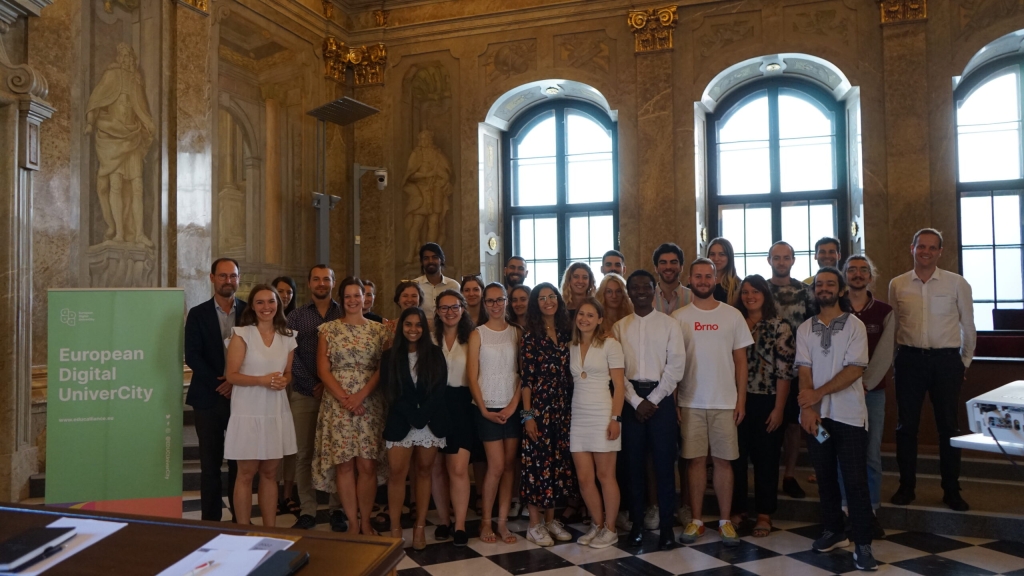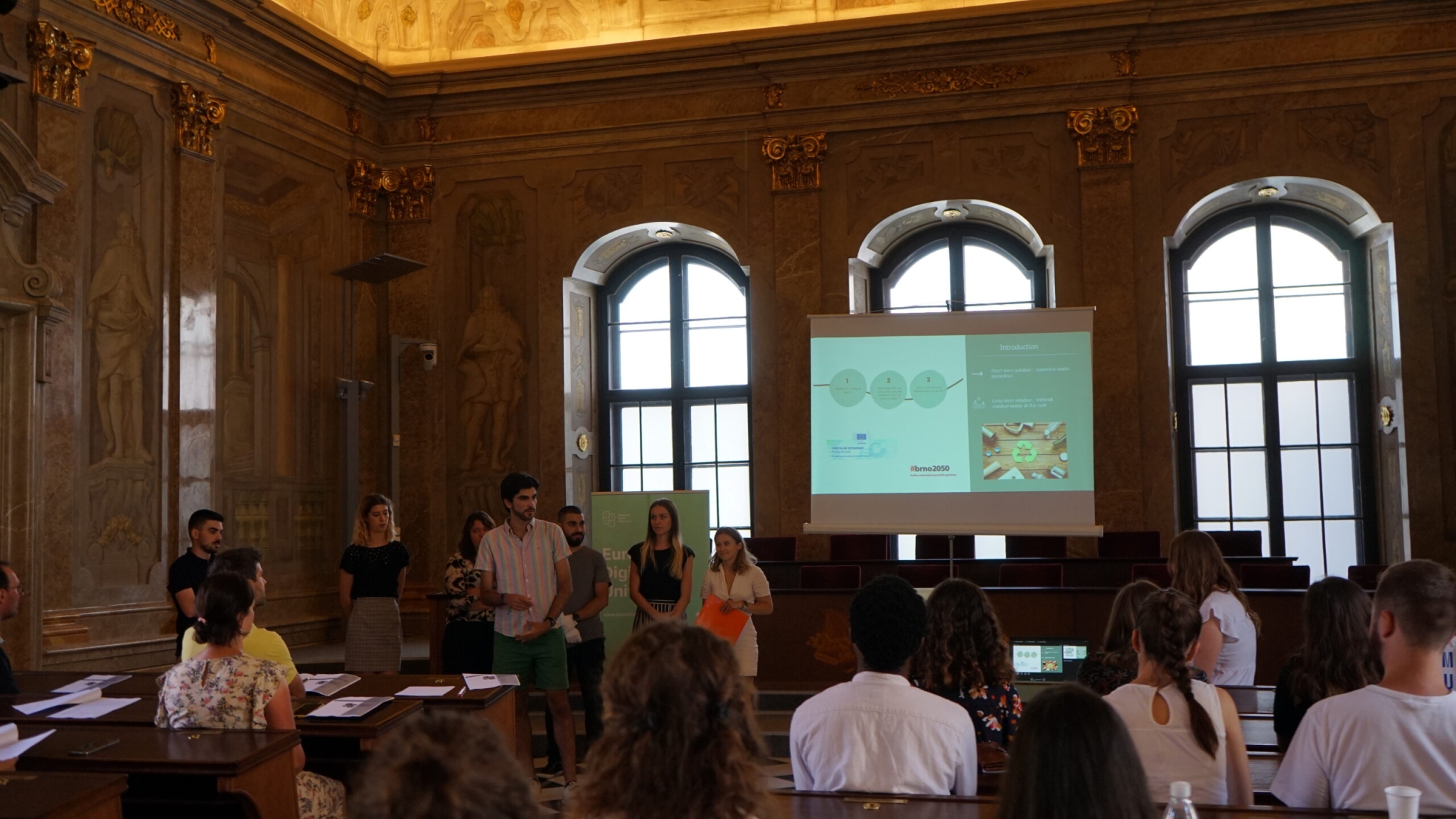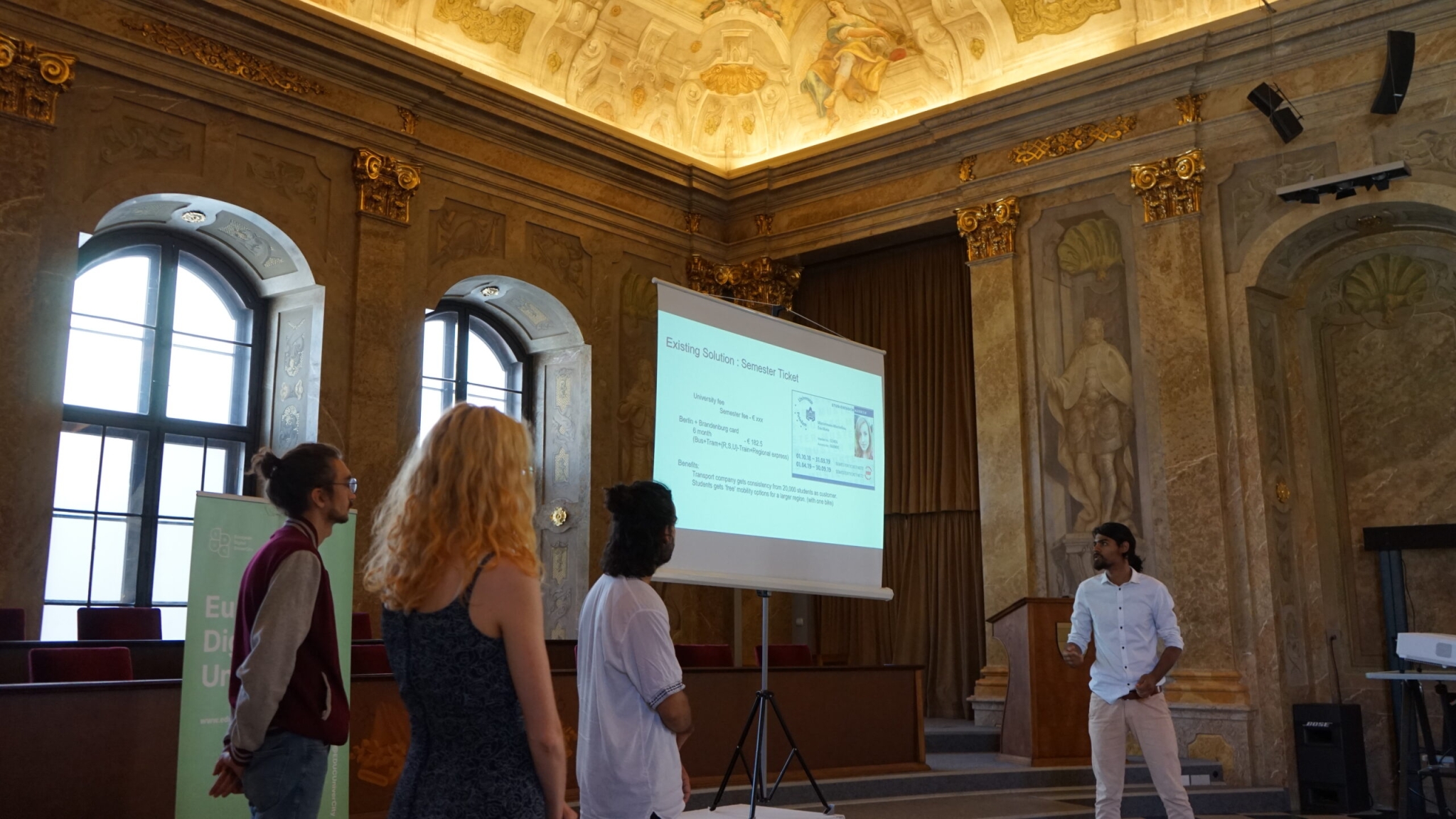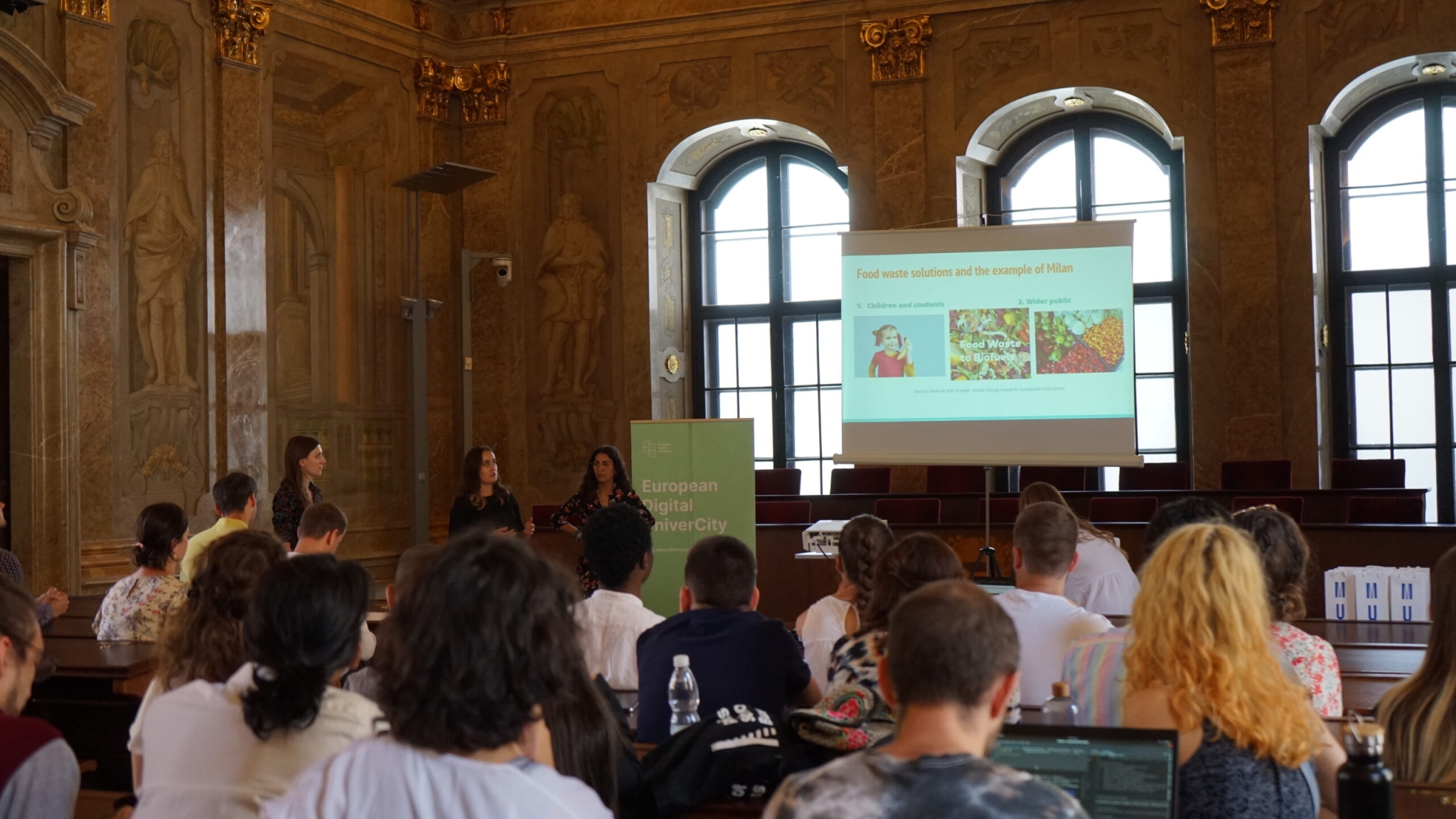The inter-university course Green City, organised by Masaryk University within the EDUC Alliance, was concluded in the premises of the Brno City Assembly on 21 July 2022. Student teams had the opportunity to present their five-month work to representatives of the Brno City, specifically in the field of circular, sharing economy and air quality improvement. All works focused on the situation in Brno and its metropolitan area.
The EDUC (European Digital UniverCity) alliance consists of five universities (University of Potsdam, University of Potsdam, University of Pecsci, University of Cagliari, University of Rennes and University of Paris Nanterre) in addition to Masaryk University. The aim of the alliance is to link these six universities into one common European university by cooperating on various forms of international education (trips abroad, joint courses, summer schools and virtual mobility). One of the supported projects is the inter-university course EDUC Green City.

The course took place in the spring semester and culminated in a week of student participation in Brno. As the name of the course suggests, the students focused on improving the quality of the environment in cities and their hinterland. Under the expert guidance of academics from the Faculty of Economics and Administration of Masaryk University, the students were introduced to the issues of transport, waste management, air pollution and the impact of all these activities on the health of inhabitants in cities and their surroundings.
The course was conceived in cooperation with the Brno City and the students were able to learn what plans the city of Brno to improve the quality of the environment and combat climate change. Not only that, they were also introduced to the Brno Metropolitan Area Strategy and the importance of cooperation between the city and the municipalities in its hinterland. This is all bearing in mind that even air pollution problems do not end within the borders of cities and municipalities and it is therefore necessary to solve these problems in a metropolitan way.
During their week-long visit, the students had the opportunity to see Brno’s projects and to visit, for example, the planned smart district of Špitálka, the new waste treatment centre at SAKO or the Partnership Foundation’s passive house in the Open Garden. The students also visited the green village of Hoštětín, which is known for a number of environmental projects.


The course ended with a presentation of five working documents to representatives of the Department of Strategic Development and Cooperation and the Department of Environment of the City of Brno. Students presented their ideas on how to improve the functioning of Brno and its surroundings in these areas:


During their presentations, the students evaluated the current situation within the city of Brno and its hinterland and came up with recommendations on how to improve the status quo through various projects or initiatives. The students drew mainly on foreign examples and presented different approaches of other cities and metropolises in dealing with the issue. Their work was very inspiring and will serve as a working documents to be used in planning other metropolitan projects.
Register your e-mail address to receive regular updates from the Brno Metropolitan Area.